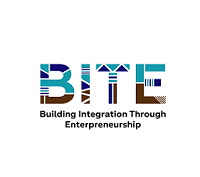A lot to show for this third and conclusive issue of 2020. This call yielded incredible success amongst our 56 member institutes. Make sure to have a look down below at the multitude of projects on show! This can be a great opportunity for further connection within and outside our Network!
These works are either led by or joint endeavors of our MI, and this time we feature: CIES-ISCTE-IUL, ISR, ISMU, EUR, ISR, MACIMIDE, GRITIM-UPF, OEAW, MMB, ESOMI, RUNOMI and Utrecht University.
UNIC. A European University of the future
UNIC (European University of Post-Industrial Cities) is a European alliance of eight universities based in post-industrial cities with a mission to boost mobility and inclusion for societal impact. UNIC was formed as a response to the European Commission’s call to create bottom-up networks of universities throughout Europe that enable students to obtain degrees by combining studies in several EU countries. Erasmus University Rotterdam, Koc University Istanbul, Ruhr University Bochum, University of Liege, University College Cork, University of Deusto, University of Oulu, and University of Zagreb form the UNIC alliance.
UNIC builds upon existing research collaboration within the context of the IMISCOE Research Network. Seven of the UNIC universities are IMISCOE members (EUR, KU, RUB, UCC, UD, ULÌEGE, UOULU), and University of Zagreb is associated. It is UNIC’s ambition to take these collaborations to the next level, not only in research but also by underpinning university education and policies with its research excellence. As universities in post-industrial cities face similar challenges and opportunities regarding working with migration, diversities and cities, UNIC will offer unique opportunities for new collaborations for students, researchers, and university staff.
The alliance has received a contribution from the European Union of 5 million Euros for a 3-year period. The universities also bring in another 1,25 million Euros. By 2023, UNIC will have created the following:
An Inter-University Campus, where UNIC students will participate in courses and research projects.
A Superdiversity Academy, where teaching and research expertise will be joined to develop and apply an innovative model of superdiversity teaching and learning.
CityLabs, where students, professors, and city partners jointly work on urban challenges.
UNIC is an alliance today but strives to be the model for the European Universities of tomorrow.
For additional information on UNIC, visit www.unic.eu
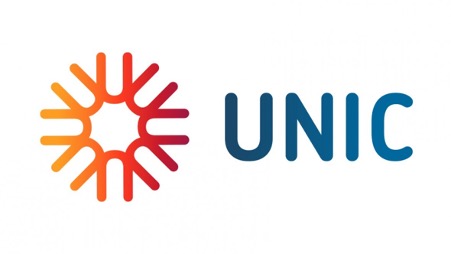
Mediterranean Migration Studies: Theoretical and Empirical research agenda. IMISCOE Summer course
The main objective of this IMISCOE Summer Course is to provide an intensive program that promotes Mediterranean Migration Studies. It will be topic-oriented, and will follow three main drivers:
- Promoting innovative research shaping the Mediterranean Migration Research agenda
- Debating new patterns/drivers of Mediterranean Human Mobility and governance reactions
- Following Med-Thinking by enhancing multiple views of the Mediterranean as a category of analysis, avoiding Eurocentrism and generalized arguments, and focusing on positive views of migration.
Considering the different topics that the Ph.D. students are developing in their studies, the common concern on methodologies, categories and approaches of analysis will be the main instrumental focus. Therefore, it will be required that students work in teams and create presentations directed at adapting their research projects to Mediterranean Migration Studies as a new area of research.
The Ph.D. Summer School is offered to multi-disciplinary and international individuals working on Mediterranean Migration. A maximum of 20 outstanding Ph.D. students will be admitted.
Multi-disciplinarity, multi-topics, multi-methodologies and multi-sited coverage will be ensured. Additionally, we will be gender sensitive both at the level of professors, students and topics covered. Teaching materials, ICT technologies, social events, as well as social and policy encounters will be included. The inclusion of narratives from the South providing new views/voices/perspectives is part of our agenda.
The program includes a range of academic activities such as: lectures (opening and closing lectures), academic and social roundtables, a documentary screening with the presence of the directors as well as PhD. Workshops.
We expect more than 15 leading scholars, international experts, stakeholders and civil society organizations. As to ensure interaction and opportunities for building networks amongst participants. Additionally, the on-campus lunch offered by the UPF cafeteria is included in the fees.
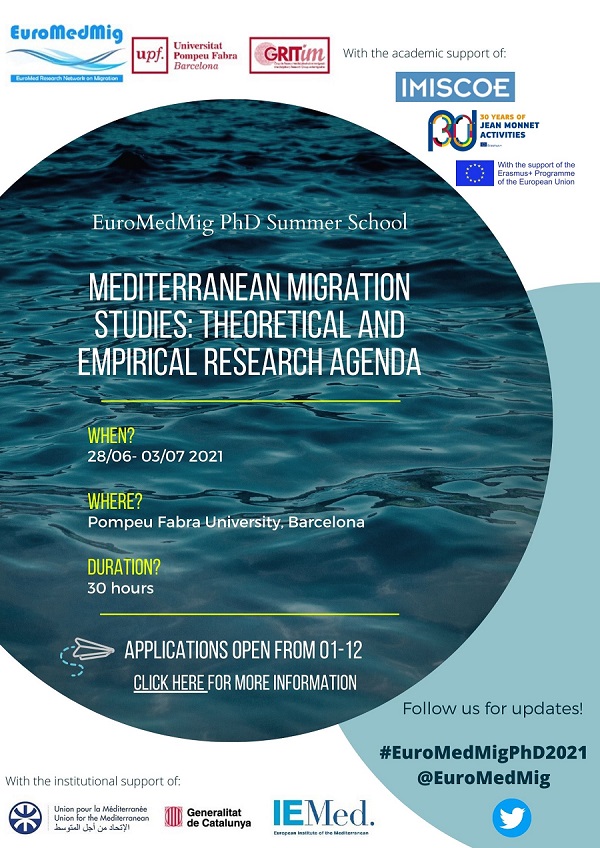
FEMINA. Fertility, Migration and Acculturation: Intersectional approach to the sexual and reproductive experiences and expectations among Cape Verdean and Portuguese Families
Field/topic: Sociology and Public and Environmental Health/Sexual and Reproductive Health, Rights, and Justice
Current knowledge on the interplay among sexual and reproductive health (SRH), immigration and acculturation, is new and inconsistent, particularly regarding the sociocultural constraints to fertility. To address this knowledge gap, FEMINA (FErtility, MIgratioN and Acculturation) is implementing an intersectionality-informed approach to the complex factors of social, cultural and institutional order which influence SRH experiences and expectations among Cape Verdean and Portuguese Families and how they impact on SRH inequalities in Portugal.
A multimethod research was designed with quantitative and qualitative data collection on SRH and related factors, including: a cross-sectional telephone survey with a probabilistic sample of Cape Verdean immigrant and Portuguese native women and men (women aged 18 to 49 and men aged 18 to 54 years); a qualitative research through biographic narrative interviews with a subsample of Cape Verdean immigrants and Portuguese men and women; and a Delphi panel for finding consensus on good practices in SRH with experts and stakeholders from different fields.
Data will be used to produce a comprehensive set of indicators to monitor SRH in Portugal, to foster a greater understanding of its challenges to policy and decision makers, and to provide targeted recommendations to promote inclusive and migrant sensitive health services.
https://feminacies.wixsite.com/enversion
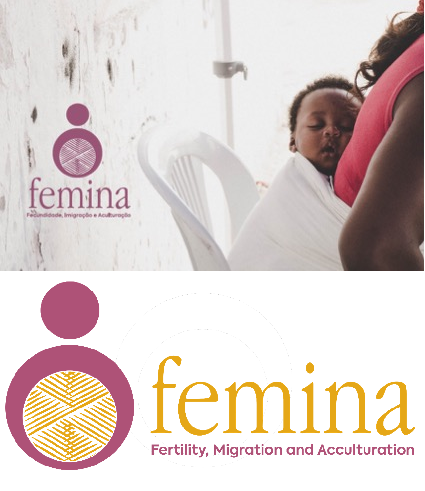
NEW CHINESE – New Chinese communities in Portugal
Since the beginning of the 21st century, migration and settlement of new Chinese communities in Europe (business migrants, highly skilled migrants, international students and lifestyle migrants) have been growing. In Portugal, the rise of Chinese migrants has followed this trend, demanding a better knowledge on their characteristics as an ethnic group, their migratory pathways and their social and professional trajectories. Current research on this community is still scarce and mainly focused on labour migrants, not considering their heterogeneity as a social group or geographic diversity. This project aims to contribute to the analysis of new Chinese communities in Portugal, through several specific aims: (i) comparative analysis of migratory and transnational flows between Portugal, Europe and China; (ii) characterization of their social, educational and cultural profiles; (iii) identification of their economic and professional activities, having in mind their entrepreneurial strategies, and the opportunities and constrains that they might be subject to; and (iv) the analysis of the trajectories of social integration of first and second generation migrants. The methods to be used in this project will be both quantitative (statistical data) and qualitative (semi-structured interviews, biographic interviews).
- Team: Sofia Gaspar (coordinator), Thaís França and Fernando Ampudia de Haro (CIES-IUL); Irene Rodrigues (ISCSP-ULisboa).
Link: https://ciencia.iscte-iul.pt/projects/new-chinese-immigrant-communities-in-portugal/1151
Meetings of China Studies
In the scope of this projet, Meetings of China Studies are organized joinly by CIES-Iscte and CEI-Iscte, aimed at researchers, teachers, students and professionals interested by subjects and problematics on China and Chinese community in Portugal.
The aim of these meetings is to provide knowledge and critical debate on theoretical and empirical research from academics or other professions, looking to stimulate an interdisciplinary approach with the contribution of sociology, anthropology, political science, international relations, economy, management, history and literature.
Link: https://www.cies.iscte-iul.pt/np4EN/218/
CULTURAL PATTERNS AND DYNAMICS. Research in 5 neighborhoods in Brussels
How do we approach and develop the city, based on the cultural practices of the people living in Brussels? What do these cultural practices mean? What drives people and what are the thresholds for participation? How does this translate into urban practice?
In October 2019, perspective.brussels launched a study on the cultural and leisure practices of the inhabitants of Brussels. The study focused more specifically on the inhabitants of five central neighborhoods of the Brussels Canal Zone, an area that is currently undergoing numerous socio-economic and spatial changes.
The study is the result of a collaboration between the University of Liège (CEDEM: Centre d'Etudes de l'Ethnicité et des Migrations) and Gent (CUDOS: Cultural Diversity: Opportunities and Socialization). It combines a quantitative study (UGent) and in-depth ethnography (ULiège) in order to provide comprehensive insights into the issues.
Learn more at:
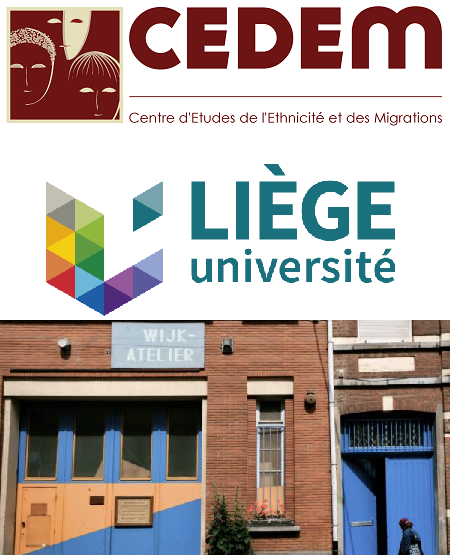
BITE – Building Integration Through Entrepreneurship
Field: Integration - migrant entrepreneurship
The BITE project (Building Integration Through Entrepreneurship) is an EU-funded project that fosters the integration of migrants from sub-Saharan Africa by unlocking their entrepreneurial potential. Between 2018 and 2020 the project has selected 100 migrants between Italy, Sweden and Greece in order to train them and mentor them on how to start their own business in Europe and in their country of origin.
In order to disseminate project results, partners developed a handbook that builds on the evidence collected on the different components of the “BITE approach” and outlines the factors that could facilitate or hinder the impact of projects and programmes addressing migrant entrepreneurship. In particular, the handbook focuses on four domains: outreach & selection, training, mentoring & financial inclusion, and communication, dissemination and transfer.
The handbook, that was launched in a thematic webinar, resulted from a six-month research conducted by Fondazione ISMU where the project was broken down into its components, analysed and reassembled as a model. Four infographics summarise the recommendations provided.
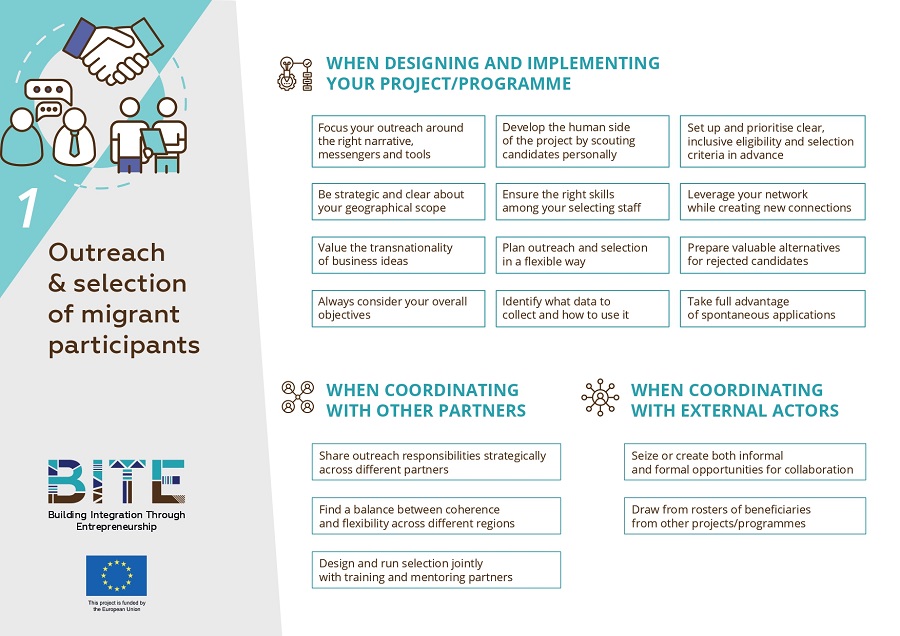
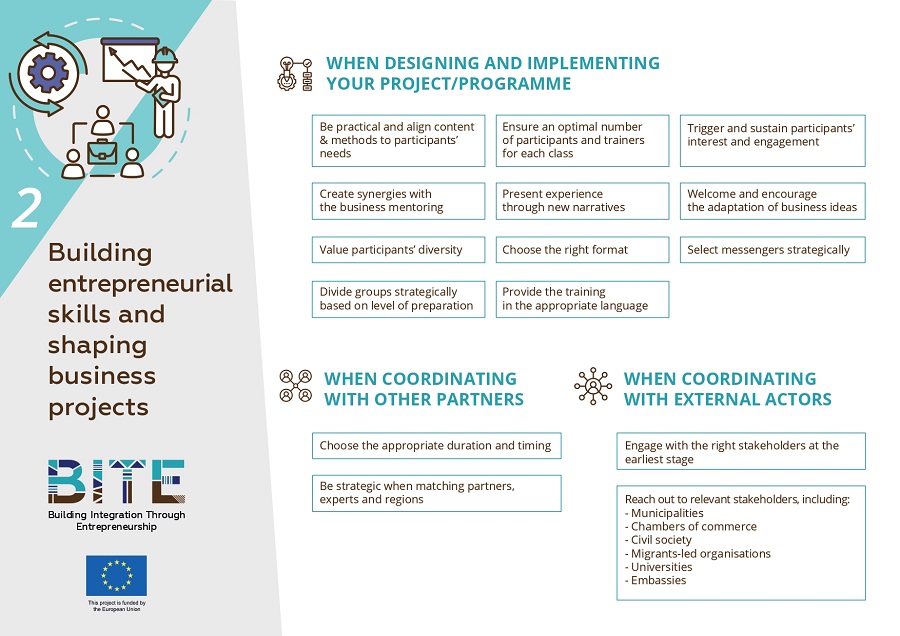
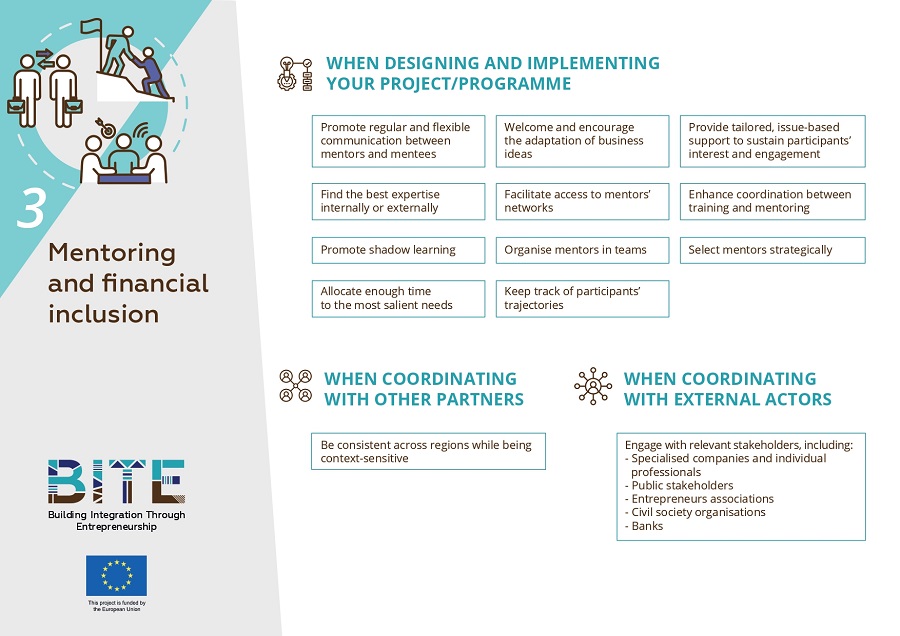
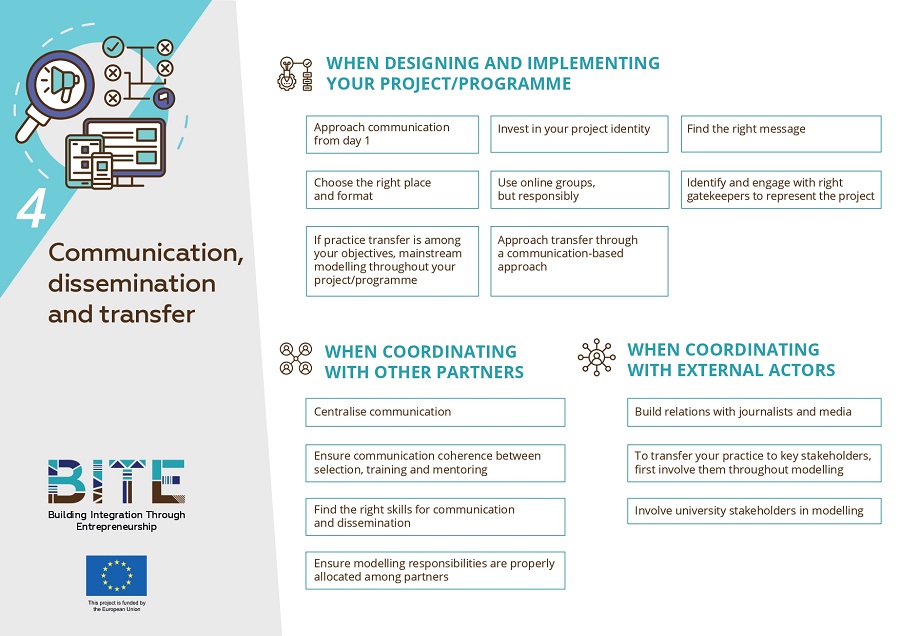
MO-TRYAL. Mobility Trajectories of Young Lives: Transnational Youth in Global South and North
MO-TRAYL (2017-2022) aims to develop a better understanding of the relation between migration and young people’s life chances. To date, it has been assumed that young people’s movement patterns are rather straightforward and linear; either they accompany their parents when they migrate and thus move once or they do not move at all and are ‘left behind’. This conception of youth mobility is overly simplified and does not do justice to the experiences of young people with migrant background. MO-TRAYL studies youth’s various mobility experiences, including immobility, through a transnational, longitudinal and mixed methods approach focusing on Ghanaian young people in Ghana, The Netherlands, Germany and Belgium simultaneously. In doing so, it will fundamentally advance our knowledge of the ways migration impacts young people’s life courses at home and abroad.
Learn more at: www.motrayl.com
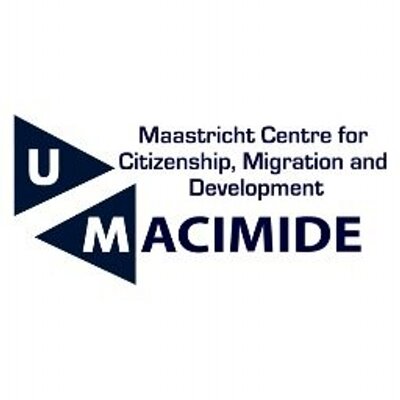
Governing Diversity in Europe’s Plural Spaces: A Path to New Normativities
The question of how to reconcile diversity and integration has occupied public debates, political agendas and social sciences for decades. This WP provides a brief outline of how the project Negotiating Diversity in Expanded European Public Spaces addresses these matters. Our point of departure is that questions pertaining to the governing and recognition of diversity in Europe cannot be properly addressed without at the same time taking into account the multilevel character of European public space, the multiple characters of the groups (national/religion based etc), and the multiple modes of integration. Within such a complex European space, we identify four policy/theoretical approaches to diversity management and understanding of public space: multiculturalism, interculturalism, transnationalism and cosmopolitanism. Each ‘ism’ has its own conception of public space, diversity, equality and solidarity. Our main aim is to contribute to the normativities that inform the theory and practice of integration and diversity governance in Europe.
Link(s): "Governing Diversity in Europe’s Plural Spaces: A Path to New Normativities."
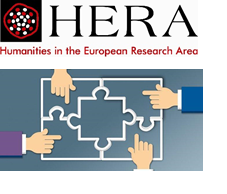
YouBeOn – Young Believers Online. Mapping on- and offline identifications of urban religious youth
- Keywords: Religious Belonging, Youth Culture, Digital Research, Social Media, Urban Studies
- Funding: Innovation Fund Research, Science and Society, Austrian Academy of Sciences (OeAW) (https://www.oeaw.ac.at/en/foerderungen/foerderprogramme/subsites/innovation-fund-research-science-and-society)
- Duration: Sept 2020 - Sept 2022
- Key personnel: Astrid Mattes (lead, Institute for Urban and Regional Research (ISR), OeAW), Christoph Novak (ISR, OeAW), Katharina Limacher (Research Centre "Religion and Transformation in Contemporary Society", University of Vienna)
YouBeOn is an interdisciplinary, explorative research project interested in the conceptualization and visualization of on- and offline identifications of urban religious youth. While superdiversity has become a characteristic feature of many European societies, political responses are often one-dimensional attempts to pin down a collective identity. In stark contrast, we see that young people growing up in diverse urban areas make identifications in multiple, flexible ways, both in their physical surroundings and in digital spaces. By using innovative methods and digital tools, we investigate how young religious people living in superdiverse urban settings negotiate their multiple belongings on- and offline. Building on the increased interest in belonging - both in terms of “religious belonging” and “politics of belonging” - we explore processes of identification to contribute to the conceptualization of an often used, but under-theorized approach. YouBeOn re-conceptualizes the multiplicity and multi-layeredness of belonging, also by means of visualization. Together with experts in Digital Humanities, we develop an application that visualizes links between physical locations, online activities and individual constructions of belonging. Through participatory research methods, we collaborate with young people and acknowledge them as agents and stakeholders in the research process.
Learn more at: www.youbeon.eu (The homepage is planned to go online in mid-november).
https://www.instagram.com/you_be_on/
- Duration: Sept 2020 - Sept 2022
- Key personnel: Astrid Mattes (lead, Institute for Urban and Regional Research (ISR), OeAW), Christoph Novak (ISR, OeAW), Katharina Limacher (Research Centre "Religion and Transformation in Contemporary Society", University of Vienna)
- Keywords: Religious Belonging, Youth Culture, Digital Research, Social Media, Urban Studies
- Funding: Innovation Fund Research, Science and Society, Austrian Academy of Sciences (OeAW) (https://www.oeaw.ac.at/en/foerderungen/foerderprogramme/subsites/innovation-fund-research-science-and-society)
- Duration: Sept 2020 - Sept 2022
- Key personnel: Astrid Mattes (lead, Institute for Urban and Regional Research (ISR), OeAW), Christoph Novak (ISR, OeAW), Katharina Limacher (Research Centre "Religion and Transformation in Contemporary Society", University of Vienna)
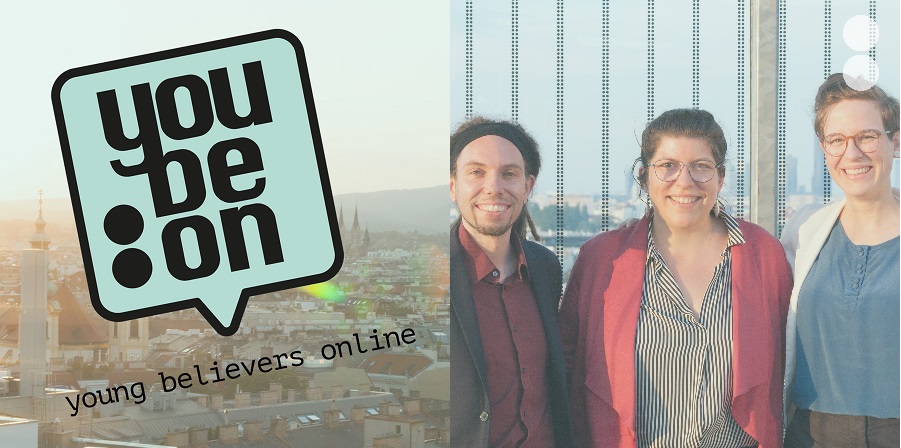
The modes and outcomes of interaction of (im)mobile Kurdish women with public space: a cross-cultural comparative study of different urban contexts
Keywords: Kurdish women, Public spaces, social interactions, women’s empowerment
In the literature, not much has been reported on the Kurdish urbanism in Kurdistan (geographic region in Middle East traditionally inhabited mainly by Kurds) in general and women's public space in specific, particularly its socio-spatial implications for their everyday social lives. This is mainly important if we consider this in a cross-cultural comparative study in different urban contexts where Kurdish women have experienced. They can narrate different kinds of engagement, the challenges they are confronted with and the strategies they gained to overcome gender inequality leading to their self-empowerment in social life. There is hardly any specific analysis concerning the modes and extent of Kurdish migrant women’s interaction with public space in European cities, particularly how this new spatial context affected their social life and empowerment. For better understanding of the subject, the general approach of the study is in line with combinations of quantitative and qualitative approaches (Q-squared): a survey method of questionnaire and focus groups discussion with target population of aged 25-65. findings can help to find ways of making better connections between their everyday experience as (im) migrants and public spaces as a constituent element of their social life.
https://www.oeaw.ac.at/en/isr/team/rg-urban-transformation/hooshmand-alizadeh/
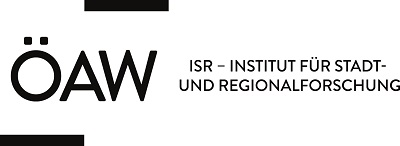
Radicalisation, Secularism and the Governance of Religion: Bringing together European and Asian Perspectives (GREASE)
A research and innovation action, GREASE is an ambitious project that investigates the governance of religious diversity and religion as a factor in radicalisation across four continents and 23 countries.
The project examines secularisation and radicalisation in light of wider societal transformations such as increased connectivity, mobility, migration and inter-dependence as well as widening inequalities and the re-emergence of nationalism. It addresses compelling questions such as: What can Europe learn from other parts of the world about governing religious diversity? And what insights can research yield to help prevent religious radicalisation?
By combining theoretical research, first-hand qualitative data collection, quantitative indicators and comparative work, the GREASE consortium attempts to overcome a Eurocentric approach. It employs multiple methodologies and utilizes innovative dissemination tools (documentary filmmaking, an ever-growing blog hosted by open democracy, Massive Open Online Courses), comparing developments in multiple cultures on different continents and emphasizing strategies for fostering resilience.
The ten-partner consortium includes two IMISCOE partner institutions, the European University Institute (which coordinates the project) and the University of Bristol. It also collaborates with IMISCOE’s most recent member, Ryerson’s CERC Migration led by Anna Triandafyllidou.
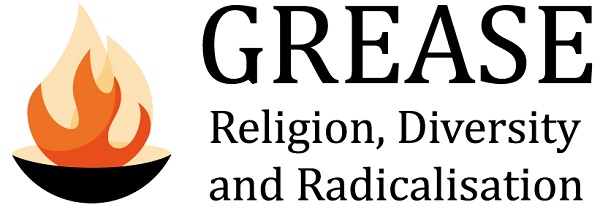
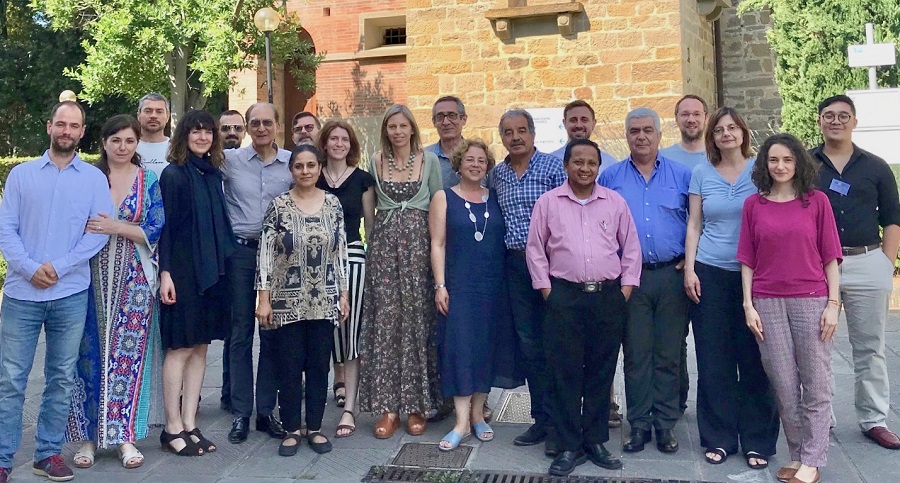
Meeting EUI
Gender, cross mobilities and transnational dynamics
Funding entity: Ministry of Economy and Competitiveness. Call 2015
Duration: 01/01/2016 AL 31/12/2020
Coordinator: Laura Oso Casas.
Topics:
Gender, transnationalism, migration, social mobility, crossed mobilities.
The main aim of this research project is to analyse crossed mobilities within the framework of transnational dynamics and globalisation. Our focus is on the context of the change in Spains migratory cycle in the wake of the 2008 economic crisis, adopting a gender and intergenerational based approach. Furthermore, and moving beyond the macro-structural impact of globalisation on population flows, we consider individual and family resilience strategies employed by both immigrants in Spain and Spanish origin emigrants in Europe. By crossed mobilities we refer to the following: 1) the articulation between geographic and social mobility; 2) the crossing of mobilities between various social actors, differentiated by gender (men/women), generation (grandparents, parents, children) and country of origin (the mobility of immigrants in Spain and new Spanish mobilities); 3) as well as the articulation between mobility and immobility. Our objectives fall within the framework of scientific debate on the following issues: 1) gender and transnationalism and 2) the shift in Spains migratory cycle. The methodology will be based on quantitative techniques, based on the exploitation of secondary sources (mainly PMH, EPA, MCVL, EVR and PERE), as well as qualitative techniques, essentially multi-sited ethnography (in-depth interviews and family life histories). The study will begin with fieldwork carried out in Spain (Catalonia, Madrid, Valencia and Galicia), working with immigrant families (Senegalese, Chinese, Argentinian, Brazilian and Ecuadorian), as well as with the relatives of Spanish emigrants in the UK and France. Fieldwork will also be carried out with the family members of immigrants to Spain in their countries of origin (Argentina, Brazil and Ecuador), as well as with Spanish emigrants in the UK and France.
Learn more at:
http://esomi.es/proyectos-en-curso/genero-movilidades-cruzadas-y-dinamicas-transnacionales
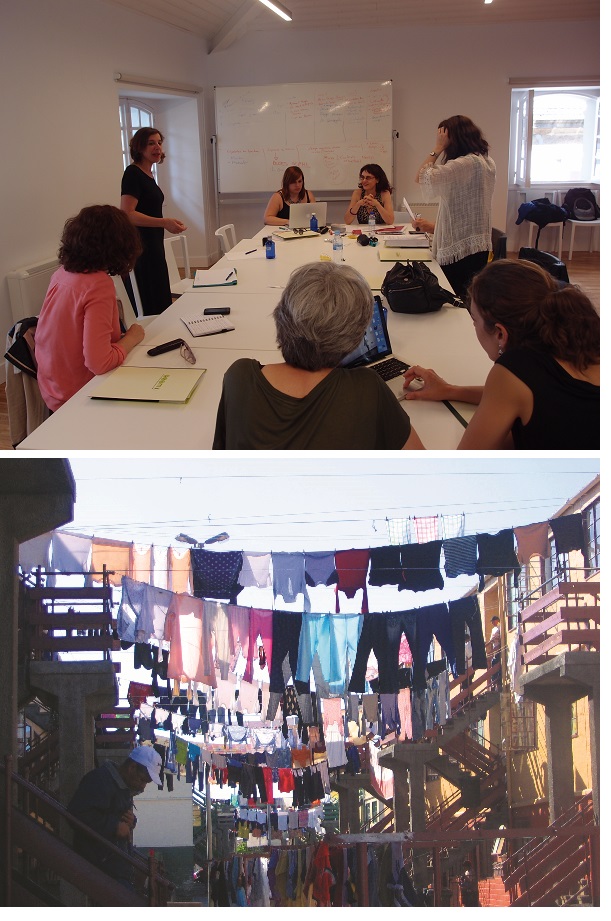
EMIGRAREIN
Integration and return of the "new Spanish emigration": a comparative analysis of the Spanish communities in the United Kingdom and France"
Field/Topic: Intra-EU migration
Coordinator: Belén Fernández Suárez
The purpose of this project is the analysis of the recent native Spanish emigration within the context of research on intra-European mobility, addressing three main aspects of the migratory experience and project: the motivation for departure, thus accounting for the diversity of profiles among recent Spanish emigrants; the relationship between integration and return; and transnational political activism.
These three dimensions are studied by comparing two of the main destination countries within Europe: the United Kingdom and France, which provide differentiated contexts for migrants integration and return as well as for the development of transnational political activities and hometown associations, and under an analytical perspective crossed by the centrality of two key variables: gender and position in the life cycle.
Learn more at: http://esomi.es
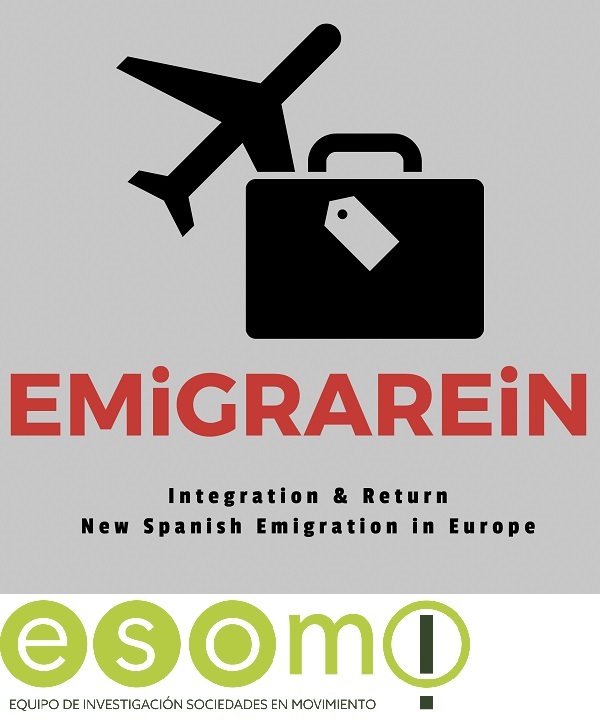
Migrants in the frontline by RUNOMI
Field/topic: Migrant inclusion; COVID-19; interdisciplinary research
Migrants in the frontline studies the effects of COVID-19 measures on EU and ‘undocumented’ migrant workers, employed in the food industry, distribution or cleaning. The social dynamics at the heart of this research is the vulnerability of migrants on the one hand, and the need for their efforts on the labour market on the other hand. The regional focus of the project is on the EU, specifically the Netherlands and Germany. Migrants workers are vulnerable because of multiple dependencies and their precariousness contributes to an increased risk of COVID-19 infection. The research is performed by an interdisciplinary team at the Radboud University Network on Migrant Inclusion (RUNOMI) and the Burcht, led by Prof. Tesseltje de Lange (RUMONI; Centre for Migration Law) and Dr. Pascal Beckers (RUNOMI). We study policies, government positions on enforcement; the migrant worker experience and employers and intermediaries responses: e.g. have employers or government bodies embarked on implementing more sustainable solutions to avoid migrant worker vulnerabilities? We combine qualitative and quantitative research methods and work with a team of experts from the field: employers, unions, local government, law enforcement etc. Sustainable innovations to improve the life of migrant workers is what we are looking for!
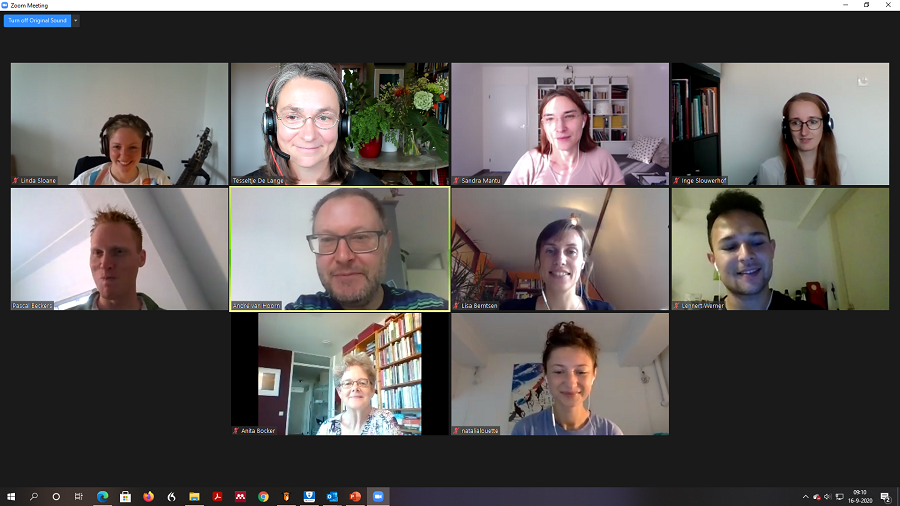
WELCOMING SPACES – Emplacement among non-EU migrants to revitalize European shrinking regions
The Welcoming Spaces project will investigate new ways to merge two policy and societal challenges: how to contribute to the revitalisation of shrinking areas in Europe, while also offering space for non-EU migrants to pursue their life projects. For this purpose the researchers have selected examples of ‘Welcoming Spaces’ across Europe. A Welcoming Space is a local initiative to attract migrants and revitalize the region. The researchers will conduct in-depth and comparative research on localities and initiatives in the Netherlands, Germany, Poland, Italy and Spain. The selected cases will be analysed from different perspectives, varying from representations of the public discourse and media, geographic and institutional contexts and the local-migrant capacity to act. Next to the academic insights, the aim of ‘Welcoming Spaces’ is to create a platform that makes these examples visible and allows practitioners and researchers to learn from successful and unsuccessful approaches in a wide variety of geographical, political and social contexts.
The project is a four-year programme funded by the EC H2020 research and innovation programme, under grant agreement 870952.
For more information see: www.welcomingspaces.eu
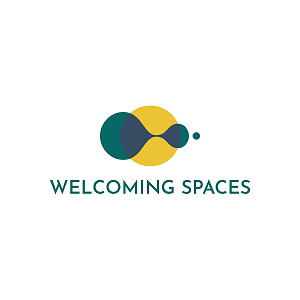
SPRING. Sustainable Practices of Integration
ISMU is pleased to announce that the project Sustainable Practices of Integration – SPRING has been awarded funding under the Horizon 2020 programme.
SPRING is a two-year project relying on a consortium consisting of Initiative and Studies on Multiethnicity (ISMU), Erasmus University Rotterdam, Danube University Krems, International Centre for Migration Policy Development (ICMPD) , SOLIDAR, Migration Policy Institute,
YOUNGMINDS, International Catholic Migration Commission (ICMC), Migration Policy Group.
The project implementation is supported by the Ottawa Refugee Hub at Ottawa University (Canada) as non-EU partner and by EUROCITIES (Belgium) as associate partner.
Focused on the integration of recently arrived migrants in the context of the large-scale arrivals of refugees and other migrants since 2014; SPRING, aims to develop a toolbox to improve the innovation, effectiveness and sustainability of the work done by Europe’s integration stakeholders at national, regional and local levels.
From March 2021 SPRING will do so by
- engaging with relevant communities of practice
- collecting evidence on sustainable and effective integration policy practices
- identifying successful and sustainable practices targeted at the integration of newly arrived migrants
- promoting an evidence culture in integration policy
- creating innovative knowledge exchange tools on sustainable practices of integration
We are thrilled to start working with some of the most expert organisations on integration in Europe!
If you are curious to learn more about the Project, you can visit our website here https://www.ismu.org/en/spring-sustainable-practices-of-integration/


